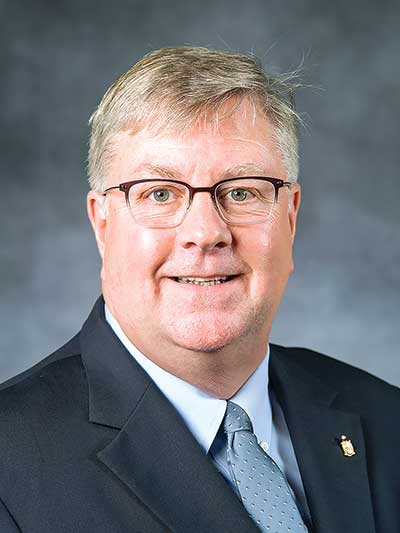 Bill Bowerman, Professor and Former Chair of the Department of Environmental Science and Technology (ENST) discusses the value of an AGNR education and its tie to our land-grant mission.
Bill Bowerman, Professor and Former Chair of the Department of Environmental Science and Technology (ENST) discusses the value of an AGNR education and its tie to our land-grant mission.
You are a passionate advocate for an AGNR education. What makes it so valuable in your mind?
This whole idea of solving the world's problems, that’s what every single department in AGNR does. We work in interdisciplinary teams. We work together to solve the big issues. And then, as a land-grant Institution, we give away the answers. That’s our mission.
Today, everyone talks about solving the world’s problems, can you be more specific?
Just look at our strategic initiatives. Every one of them is tied to a global issue: healthy watersheds, sustainable agriculture, the health of the environment, people and animals—or One Health as we call it— food security and optimizing urban environments with green technology and community engagement. These are all top priority issues that today’s students are going to be addressing for a long time.
And do you think that message and mission resonate more with students now than in the past?
I’ve talked with thousands of youth in my role with the Boy Scouts of America, and when I ask them what a land-grant institution is, they don't know. But once they find out, and they learn what we do, they get excited about coming to our college. This is Gen Z, they want to save the world. They are the next “Greatest Generation.” And that’s what they need to be called, because they are the ones who are going to have to solve these problems, and we can teach them the skills they need to do that.
Many young people look to computer sciences and genetics to tackle big issues, where does environmental science fit into that?
It comes down to combining expertise across different disciplines. Science has emphasized cellular and molecular biology, genetics and so on, to the point where field ecologists like me are sometimes considered dinosaurs, but we need more of us to really know what’s going on out in the world. If you look at what happened with avian influenza this past year, it wiped out localized regions of nesting eagles. In 39 years of studying these birds, that’s the only thing that’s ever really scared me this way, but had we not been going into the field and doing field ecology, we never would have known that. And our students are involved in this kind of on-the-ground work.